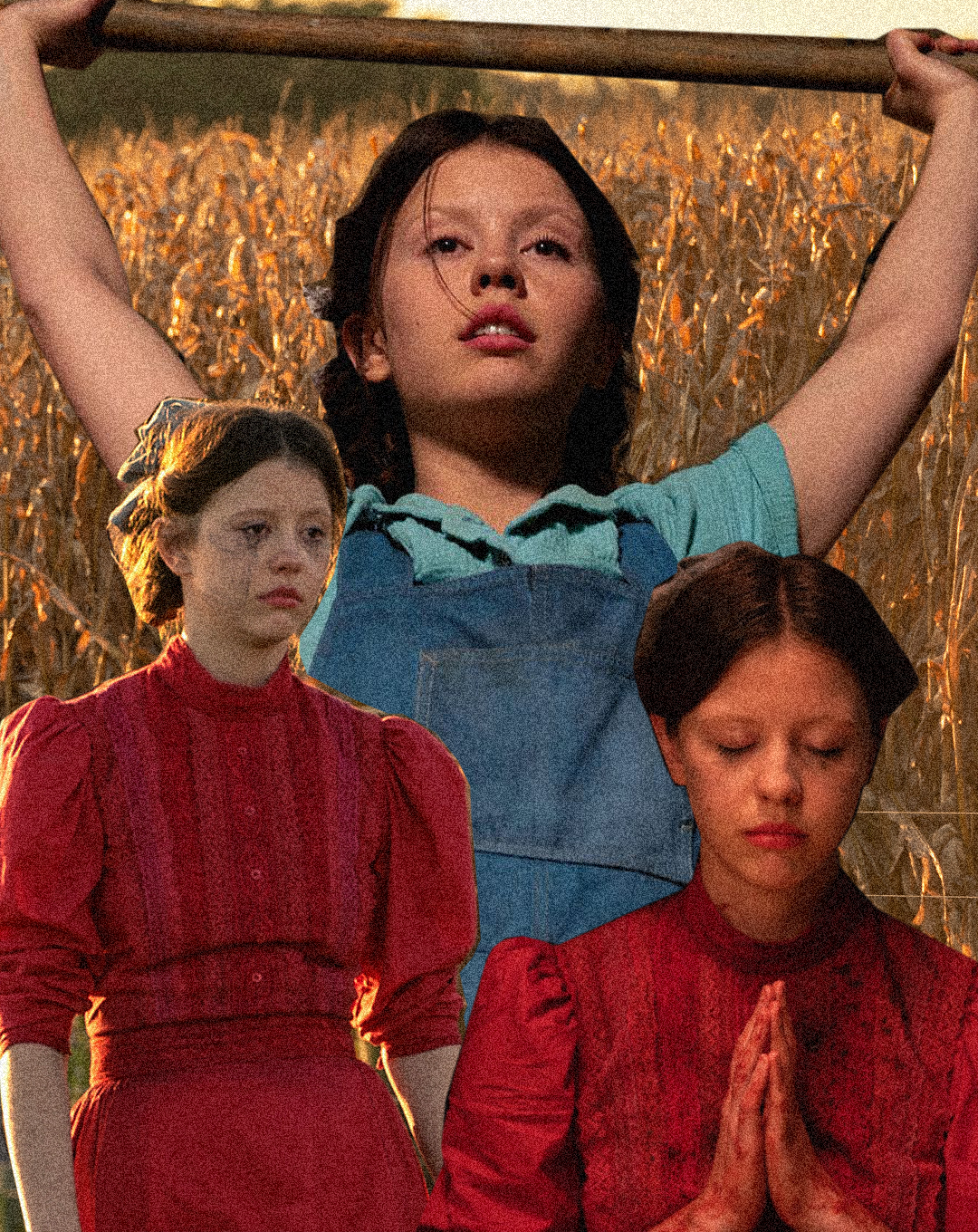Pearl and The Internet's Obsession with Feminine Rage
Whether you identify as an Amy Dunne from Gone Girl or a Dani from Midsommar, Pearl has brought us a new sad girl icon. Although unexpected, Ti West’s newest slasher film, starring Mia Goth, has recently been inducted into the femcel movie hall of fame. Femcels pride themselves on “toxic femininity” and relating to broken female protagonists that are unapologetically selfish. So naturally, Pearl fits right in.
The film follows Pearl (the “antagonist” of X) in 1918, as she desperately tries to escape her life on the family farm, answering to her strict mother and caring for her sick father; she dreams of running away making it as a movie star. Right away, women on TikTok began to empathize with Pearl’s desire to be loved and follow her dreams. “She is soooo me,” as they say. Even when it’s apparent that a female character exists solely to be the “bad guy,” you can never stop viewers from seeing themselves in her.
Although it’s not a feel-good, coming of age movie about the complexities of growing up like Lady Bird or Booksmart, you might come to realize that much of the themes of Pearl are the same. Instead of proudly cheering on the main characters as they go away to college, Pearl explores the idea of womanhood in a more nuanced way.
___STEADY_PAYWALL___
Whether or not characters like Pearl are meant to be likable, audiences always seem to find redeeming and even relatable qualities about them. Feminine rage tends to have this effect on viewers. Mostly because we rarely see female characters have this much agency, especially after being so sheltered. Pearl hits the nail on the head. Pearl is a complex character and although it was debatably unclear in X, we can now see her motivations for becoming a killer - whether or not we agree with what she’s done, we can’t help but empathize with her.
When female characters are so plainly corrupt or evil, there’s rarely any room to feel bad for them. The female villain/raging bitch archetype used to be so simple - she’s the one you’re supposed to hate. Because after all, she has no motivation for being evil, she just is. Think Miss Trunchbull from Matilda, Kathryn Merteuil from Cruel Intentions, or Chanel Oberlin from Scream Queens. These characters exist solely to torment everyone else, so of course it’s impossible to see anything beyond that.
Yet when characters like Pearl have clear motivation, it can complicate things. Although it is arguable that having trauma isn’t an excuse to be an indecent human being, following her backstory makes some women identify with Pearl and secretly root for her, even after she crosses the line.
The fetishization of female pain has long been a huge plot point in movies. It seems like people have a sick fascination with seeing women suffer, no matter how hard they try to mask it as being “artsy.” However, the thing that sets Pearl apart is her reaction to suffering - because there’s nothing sexy about female suffering when the woman gets her revenge. Traditionally, audiences are taught to only fetishize female pain when the woman is helplessly submissive and at the mercy of men - never when she takes her power back. If she is even given the opportunity to take her power back. Luckily for the femcels among us, Pearl does exactly that. She is unhinged and angry, which makes it hard for viewers to view her as the damsel in distress they may long for.
“Why’re you leaving me if I didn’t do anything wrong? I don’t understand! I thought you liked me!”
Most importantly, Pearl is relatable to female audiences and feels as if made specifically for female audiences. Although Pearl was set in 1918, a lot of the problems she faces aren’t far from our own. She deals with a controlling mother, the fear of being abandoned by a lover, and most importantly the existential dread of hoping for a future better than the present. There is even a literal pandemic going on. Because of how relatable her struggles are, it’s almost easy to feel bad for Pearl and to hope that her wildest dreams come true.
“I support women’s rights, but more importantly I support women’s wrongs,” is a popular meme that rings true in the case of Pearl. So often women are believed to have the moral high ground because women are meant to naturally be selfless, nurturing, and gentle. For Pearl, her mother never treated her that way. This manifests itself in Pearl's life in many ways. Not only does she grow to resent her mother for not supporting her, she also reveals that she’s relieved after miscarrying her own baby. Whether intentional or not, Pearl rejects the gender roles imposed on her.
Pearl realizes the responsibilities she has as a woman in her time: to stay on her family farm, to wait patiently for her husband to return, to care for her sick father, to leave her dreams behind. She knows she has a duty to care for her parents, but she wants much more for herself. Is it selfish to care more about your own goals than the needs of your family? Probably. But we’ve all sacrificed our own desires for people we love and whether or not we’d like to admit it, maybe we also wish we had a chance to do something selfish for once - even if it isn’t quite as extreme as murdering an ex lover.
Words: Kleigh Balugo


